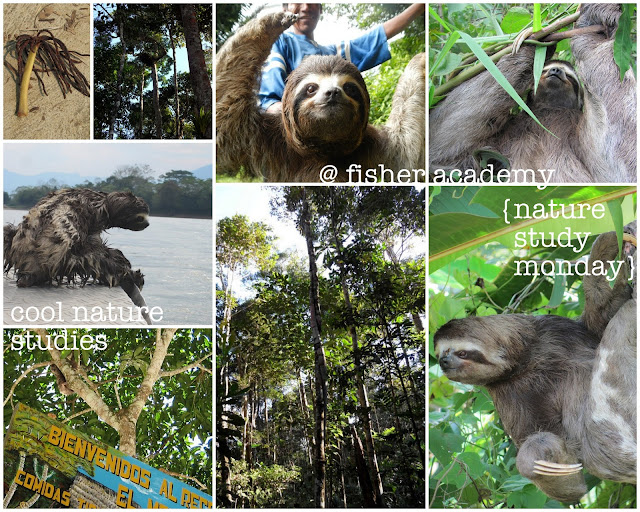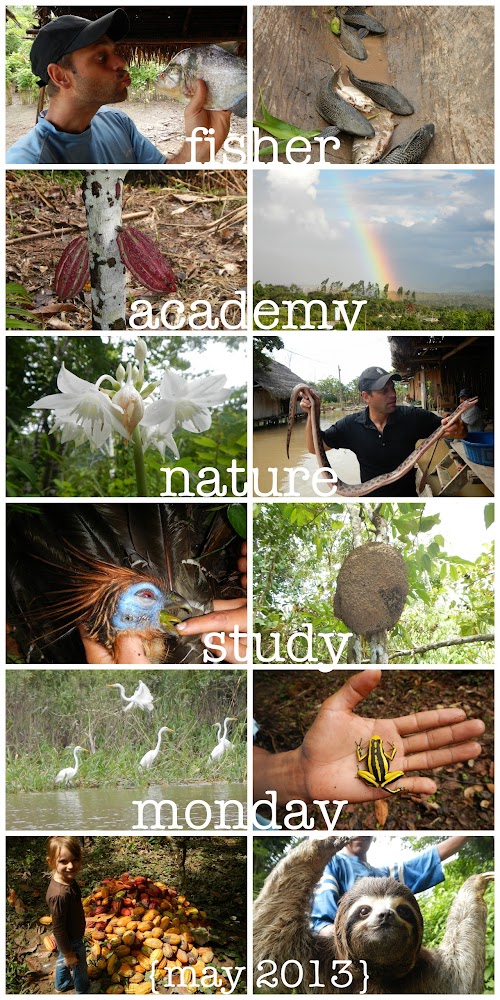A Passion for Art: Nurturing Creativity and Expression
-
Art has the power to inspire, provoke, and transform lives, offering a
unique lens through which we can explore the complexities of human
experience, emo...
Search This Blog
Friday, May 31, 2013
Thursday, May 30, 2013
Monday, May 27, 2013
the way of the will.
This subject is, I believe, the single most wanting characteristic in our culture today.
We want, want, WANT everything now, now, NOW.
In. every. area. of. life.
We want to tell everybody what we're thinking RIGHT NOW (and we can via twitter or facebook; whether it's worth the telling or not).
We want to share the beautiful moments with the entire universe RIGHT NOW (and we can via instagram or other modes of photo sharing).
We want to eat a hamburger or a taco or a salad RIGHT NOW (and we can via numerous fast food outlets or myriad quick fix options available on every shelf of the local grocery store).
We want to know a good story RIGHT NOW (and we can by watching a two-hour summary via the theater or DVD or by gobbling down an abridged version or even worse, reverting to the clif notes).
We want to feel good RIGHT NOW so we... well, fill in the blanks of what the impatient, undisciplined and/or worldly would do.
But the real question is not what we WANT, but what we ought as applies to both action and thought. And in order to do or think what we ought, we must WILL ourselves to it. Obviously, some decisions require more power of will than others.
Tarapoto's best, no wait, only FAST FOOD... a very real and constant temptation for me to skip out strengthening my will when it comes to our family's eating enjoyment. I am not saying that fast food is bad. Or that taking advantage of quick foods is wrong. It's just that, not so long ago, I shared that cooking was one of the areas I needed to work on... "For me lately it is cooking. I've never really liked to cook. And for some reason, in recent weeks, it's become more of a chore. But someone must cook, or there'd be certain mutiny among my crew. And we'd be very, very hungry. So, even though I don't want to cook, and wish someone else would do it, I know that I ought to. So I do. Many days I can think of a thousand things I'd rather, and so have to will myself to do it; twist my own arm, so to speak."
Like my friend Tammy wrote in her post, this is not just a consideration for children. I think that's why this post was so long in coming. There is just so much that could be said. AND, it hit so close to home for me!! This is a lesson we as parents must take time to consider for ourselves if we are ever going to really teach our children a single blessed thing. Especially those of us raised in the generation of Instant Satisfaction. We must will ourselves to live a disciplined lifestyle in order for some of these things to rub off on our children. Of course we must keep in mind what my friend Megan mentioned, "Once again, though a disciplined will is not a necessary condition of the Christian life, it is necessary to the development of the heroic Christian character." And this is of course, what I'm so intensely longing after, praying for and thinking of as I'm writing this post. In order to do that:
We must be willing to go the distance, to will ourselves to make right choices even though they may be difficult or even postpone gratification for a very long time.
This chapter is absolutely chock full of food for thought, as relates to personal life, education and the life of a nation. You should read it! :) And maybe someday, I'll write up full posts for all the thoughts I had... you never can tell. :)
Two guides to MORAL and INTELLECTUAL self-government.Read more about how we Pursue the Way of the Will here.
The way of the will: Children should be taught,(a) to distinguish between 'I want' and 'I will.' (b) That the way to will effectively is to turn our thoughts from that which we desire but do not will. (c) That the best way to turn our thoughts is to think of or do some quite different thing, entertaining or interesting. (d) That after a little rest in this way, the will returns to its work with new vigour. (This adjunct of the will is familiar to us as diversion,whose office it is to ease us for a time from will effort, that we may 'will' again with added power. The use of suggestion as an aid to the will is to be deprecated, as tending to stultify and stereotype character, It would seem that spontaneity is a condition of development, and that human nature needs the discipline of failure as well as of success.)
This has been another 'thinking out loud' post, along the lines of chapter 8 of CM's Homeschooling Series, Volume 6, Towards a Philosophy of Education. Did you know that the Charlotte Mason Blog Carnival is going through this volume systematically? Interested? Check out recent posts and the schedule for future posts here.
Labels:
Charlotte Mason,
CM,
discipline,
philosophy,
volume 6,
way of the will
really cool nature: sloth. {nsm}
Our question for today is, are sloths, as their name implies, really slothful?
I'll let you decide for yourself. Let me know what you think in the comments, if you feel so inclined! :)
Sloths.
These little guys are absolutely fascinating. The way they move, the way they live, their seemingly bemused expression... I like them. We've run into a few on occasion, though surprisingly, we've never seen any in captivity here. Either they were 'what's for dinner' in one of the villages Micah visits (I know... sad), or we happened to see one in the low bushes or trees on the side of the road (or on the side of the boat, in the case of the video above). I think they're otherwise kinda hard to spot when we're out and about in the really tall trees, but honestly, I haven't actually purposefully tried to look.
The most interesting bits from personal experience are:
They have a very strong grip. Once they grab onto a branch, it's difficult to deter them.
They can swim! Who'd a thought it?
They move more quickly than rumor would have it.
Their claws LOOK dangerous, but they are seldom aggressive.
Basic facts & myth debunkers:
While it has been rumored that sloths move so slow that moss grows on their hair, this is not at all true. Sloths do not always move slowly. But their movements certainly do look almost mechanical (see linked video below). While normally, their moves seem measured and certainly unhurried, they have been known to move very quickly if defending their territory (males) or their young (females). All the sloths we've seen personally have not been all that slow. Think ground to tall tree top in 2 minutes or less.
One thing's certain, these strange creatures are utterly un-slothful in their bathroom habits. Matter of fact, they make their way all the way down from their tree lodgings at least once a week to go number two. Not only that, but when they get to ground level, they actually dig a hole with their stumpy little tails and bury their excrement. Now, I know that's the kind of thing you've always wanted to know... You are so very welcome. :) It is interesting, though, isn't it??
The greenish hue that some sloths take on is actually from algae, NOT moss. But along with the algae, scientists have found all sorts of other yummies in hanging out in their hair, read the scientific paper to find out what those things are.
Sloths usually have a favorite tree (a modal tree), but may roam about between 10-40 trees. They are said to consume about 10% of the trees' leaf/bud/blossom output. But, thankfully they are good stewards, taking their ecological responsibility seriously and are efficient fertilizers (remember how they use the bathroom?). I found thhe author's viewpoint in one of my books, though not intended to be, almost humorous on this point:
Helpful links:
Do you find sloths fascinating? You are not alone because, "Scientists are fascinated by sloths" and have been for good reason. Read the article full of randomly awesome slothful tidbits here.
Visit a sloth sanctuary! - VERY fun to read through the posts. :)
Watch a great video showing very un-slothful sloths' movements.
Read ARKive's data on the type of sloths we see most frequently near Tarapoto, Peru:

Can you spot the sloth in the trees?!

...and the differences!! ;)

Color in your own sloth!! (right click and save image as)
We're accumulating posts for sharing our nature studies in May... Won't you add yours to the list?
Please feel free to share the following image in your post inviting your readers to come on over and join us, too! The more the merrier!! :)

::
I'll let you decide for yourself. Let me know what you think in the comments, if you feel so inclined! :)
Sloths.
These little guys are absolutely fascinating. The way they move, the way they live, their seemingly bemused expression... I like them. We've run into a few on occasion, though surprisingly, we've never seen any in captivity here. Either they were 'what's for dinner' in one of the villages Micah visits (I know... sad), or we happened to see one in the low bushes or trees on the side of the road (or on the side of the boat, in the case of the video above). I think they're otherwise kinda hard to spot when we're out and about in the really tall trees, but honestly, I haven't actually purposefully tried to look.
The most interesting bits from personal experience are:
They have a very strong grip. Once they grab onto a branch, it's difficult to deter them.
They can swim! Who'd a thought it?
They move more quickly than rumor would have it.
Their claws LOOK dangerous, but they are seldom aggressive.
Basic facts & myth debunkers:
While it has been rumored that sloths move so slow that moss grows on their hair, this is not at all true. Sloths do not always move slowly. But their movements certainly do look almost mechanical (see linked video below). While normally, their moves seem measured and certainly unhurried, they have been known to move very quickly if defending their territory (males) or their young (females). All the sloths we've seen personally have not been all that slow. Think ground to tall tree top in 2 minutes or less.
One thing's certain, these strange creatures are utterly un-slothful in their bathroom habits. Matter of fact, they make their way all the way down from their tree lodgings at least once a week to go number two. Not only that, but when they get to ground level, they actually dig a hole with their stumpy little tails and bury their excrement. Now, I know that's the kind of thing you've always wanted to know... You are so very welcome. :) It is interesting, though, isn't it??
The greenish hue that some sloths take on is actually from algae, NOT moss. But along with the algae, scientists have found all sorts of other yummies in hanging out in their hair, read the scientific paper to find out what those things are.
Sloths usually have a favorite tree (a modal tree), but may roam about between 10-40 trees. They are said to consume about 10% of the trees' leaf/bud/blossom output. But, thankfully they are good stewards, taking their ecological responsibility seriously and are efficient fertilizers (remember how they use the bathroom?). I found thhe author's viewpoint in one of my books, though not intended to be, almost humorous on this point:
"This scenario may be pure wishful thinking on our part; there may be a more parsimonious explanation for the hygienic ways of the sloth. But we like to believe that in the arduous, dangerous descent of the sloth there is a metaphor, a message urging humans to show a similar regard for conserving the fertility of the tropical rain forest."Metaphor or no metaphor, as people who appreciate God's generous gift of Creation, home to innumerable incredible animals like the sloth, we ought to be conscious of our responsibility to be good stewards of it. The same goes for every other gift we're given, right? And, why not take the sloth as an example? For this reason, I resolve to take my compost pile more seriously from now on. :) I think I shall even christen it the sloth pile.
Adrian Forsyth and Kenneth Miyata, in
Tropical Nature, Life and Death in the Rain Forests of Central and South America
Helpful links:
Do you find sloths fascinating? You are not alone because, "Scientists are fascinated by sloths" and have been for good reason. Read the article full of randomly awesome slothful tidbits here.
Visit a sloth sanctuary! - VERY fun to read through the posts. :)
Watch a great video showing very un-slothful sloths' movements.
Read ARKive's data on the type of sloths we see most frequently near Tarapoto, Peru:
| Kingdom | Animalia |
| Phylum | Chordata |
| Class | Mammalia |
| Order | Pilosa |
| Family | Bradypodidae |
| Genus | Bradypus (1) |

Can you spot the sloth in the trees?!

...and the differences!! ;)

For more really cool nature posts, see the linky below!
We're accumulating posts for sharing our nature studies in May... Won't you add yours to the list?
Please feel free to share the following image in your post inviting your readers to come on over and join us, too! The more the merrier!! :)

my favorite audio bible... is on SALE!!
AND it's on sale today for only $7.49!

and here's the OT in ESV that's completely FREE = $0.00!
Saturday, May 25, 2013
watch...
Monday, May 20, 2013
nature study: what it is. {nsm}
What is nature study? Well, it's the study of nature, of course, right? What did you first think of when you heard those words? Do you think generally or do you have some specific preconceived idea? Do you think nature journals or Handbook of Nature Study? Laid back nature walks or focused lessons? Reading from a field guide or from diaries of a naturalist? Do you envision watercolors or digital photography?
In reality, it can be one or all of those, can't it?
'Tis all about making acquaintance with the natural world. as with most relationships, first hand encounters are always of the highest value, yet, secondhand is next best. When you get on down the line to third and fourth hand accounts, that's when stories begin to lose their savoriness, so we'd be best served sticking with our own eyes or at least the accounts of informed eyewitnesses. In that case then, part of nature study will include books on natural history as well as pictorial guides. Honestly though, nothing will replace time spent getting to know the things and the places we find them in, outside.
What do you know of Charlotte Mason's take on out-of-door life? Here are some juicy interesting bits... there is so much more that you can read here.
On the Value of Nature Study.
On Flowers.
On Trees.
On Living Creatures.
On the Calendar of Firsts.
On the Nature Journal.
On Field Guides & Natural History Books.
We're accumulating posts for sharing May's nature studies... Won't you add yours to the list?
Please feel free to share the following image in your post and inviting your readers to come on over and join us, too? The more the merrier!! :)

::
Quotes used with permission from Volume One of Charlotte Mason's Homeschooling Series, made available for your online reading enjoyment by AmblesideOnline.org.
In reality, it can be one or all of those, can't it?
'Tis all about making acquaintance with the natural world. as with most relationships, first hand encounters are always of the highest value, yet, secondhand is next best. When you get on down the line to third and fourth hand accounts, that's when stories begin to lose their savoriness, so we'd be best served sticking with our own eyes or at least the accounts of informed eyewitnesses. In that case then, part of nature study will include books on natural history as well as pictorial guides. Honestly though, nothing will replace time spent getting to know the things and the places we find them in, outside.
What do you know of Charlotte Mason's take on out-of-door life? Here are some juicy interesting bits... there is so much more that you can read here.
On the Value of Nature Study.
It would be well if we all persons in authority, parents and all who act for parents, could make up our minds that there is no sort of knowledge to be got in these early years so valuable to children as that which they get for themselves of the world they live in. Let them once get touch with Nature, and a habit is formed which will be a source of delight through life. We were all meant to be naturalists, each in his degree, and it is inexcusable to live in a world so full of the marvels of plant and animal life and to care for none of these things.
Consider, too, what an unequalled mental training the child-naturalist is getting for any study or calling under the sun––the powers of attention, of discrimination, of patient pursuit, growing with his growth, what will they not fit him for? Besides, life is so interesting to him, that he has no time for the faults of temper which generally have their source in ennui; there is no reason why he should be peevish or sulky or obstinate when he is always kept well amused.
On Flowers.
Milkwort, eyebright, rest-harrow, lady's-bedstraw, willow-herb, every wild flower that grows in their neighbourhood, they should know quite well; should be able to describe the leaf––its shape, size, growing from the root or from the stem; the manner of flowering––a head of flowers, a single flower, a spike, etc. And, having made the acquaintance of a wild flower, so that they can never forget it or mistake it, they should examine the spot where they find it, so that they will know for the future in what sort of ground to look for such and such a flower.
On Trees.
Children should be made early intimate with the trees, too; should pick out half a dozen trees, oak, elm, ash, beech, in their winter nakedness, and take these to be their year-long friends. In the winter, they will observe the light tresses of the birch, the knotted arms of the oak, the sturdy growth of the sycamore. They may wait to learn the names of the trees until the leaves come.
On Living Creatures.
Then, as for the 'living creatures,' here is a field of unbounded interest and delight. The domesticated animals are soon taken into kindly fellowship by the little people. Perhaps they live too far from the 'real country' for squirrels and wild rabbits to be more to them than a dream of possible delights. But surely there is a pond within reach––by road or rail––where tadpoles may be caught, and carried home in a bottle, fed, and watched through all their changes––fins disappearing, tails getting shorter and shorter, until at last there is no tail at all, and a pretty pert little frog looks you in the face.
On the Calendar of Firsts.
It is a capital plan for the children to keep a calendar––the first oak-leaf, the first tadpole, the first cowslip, the first catkin, the first ripe blackberries, where seen, and when. The next year they will know when and where to look out for their favourites, and will, every year, be in a condition to add new observations. Think of the zest and interest, the object, which such a practice will give to daily walks and little excursions. There is hardly a day when some friend may not be expected to hold a first 'At Home.'
On the Nature Journal.
As soon as he is able to keep it himself, a nature-diary is a source of delight to a child. Every day's walk gives him something to enter: three squirrels in a larch tree, a jay flying across such a field, a caterpillar climbing up a nettle, a snail eating a cabbage leaf, a spider dropping suddenly to the ground, where he found ground ivy, how it was growing and what plants were growing with it, how bindweed or ivy manages to climb.
Innumerable matters to record occur to the intelligent child. While he is quite young (five or six), he should begin to illustrate his notes freely with brush drawings; he should have a little help at first in mixing colours, in the way of principles, not directions... A child of six will produce a dandelion, poppy, daisy, iris, with its leaves, impelled by the desire to represent what he sees, with surprising vigour and correctness.
He should not be told to use now this and now that, but, 'we get purple by mixing so and so,' and then he should be left to himself to get the right tint. As for drawing, instruction has no doubt its time and place; but his nature diary should be left to his own initiative.
On Field Guides & Natural History Books.
The real use of naturalists' books at this stage is to give the child delightful glimpses into the world of wonders he lives in, to reveal the sorts of things to be seen by curious eyes, and fill him with desire to make discoveries for himself. There are many* to be had, all pleasant reading, many of them written by scientific men, and yet requiring little or no scientific knowledge for the enjoyment.
Please feel free to share the following image in your post and inviting your readers to come on over and join us, too? The more the merrier!! :)

Quotes used with permission from Volume One of Charlotte Mason's Homeschooling Series, made available for your online reading enjoyment by AmblesideOnline.org.
Tuesday, May 14, 2013
really cool nature: piranha. {nsm}
I've had precious little personal experience with the infamous piranha, thankfully.
Besides that one time I went swimming in a lake full of them. Yep. I'm brave like that sometimes. Not often, but in my younger years it definitely was a more common occurrence. Of course, I thought only of the alligators that only come out at night and the ten foot river otters. Oh, back to the story: How did we know that the lake was full of piranhas, you ask? Both because our friend told us it was so, AND because he showed us it was so by baiting his line with a chunk of fruit and tossing it overboard. A few seconds and sudden roiling fin-ful water later, we had caught one. Next, he tossed a piece of the hooked piranha over and it disappeared in a matter of milliseconds. Rewind, repeat that a couple times, and we were all fully convinced. This was AFTER the swimming episode. Right. I did not swim again; thank you very much. I'm not that brave.
Piranha.
Note the pronunciation and spelling of that, will you? In spanish we say pee-RON-yah. But in English we SAY, per-ON-ah, but I have to THINK per-on-HAH or pee-ron-HAH (in espanol). I point this out, because you, like me, might have the hardest time remembering how to spell it. The H is silent in Spanish AND English and seems to want to trick us into misspelling it. However, we will not be beat, and we all now know how to spell it! ;)
Basic facts & myth debunkers:
You may have heard the debate about just how dangerous piranhas are. Obviously, as rumor has it, they are extremely deadly. Everyone's heard that, right? Ever since Theodore Roosevelt reported a story of a man who fell off of his horse and was devoured before his companion's eyes*... What, didn't you know that some species of piranhas were actually named Rooseveltialla and Taddyella after him? Yep. I'm not even joking. :) But those names eventually wore off as they proved to identify the same genus of fish that already had been named.
But those who know what they're talking about report, which lines up with the reality as we've seen it for ourselves or as friends have attested to us, that NOT all piranhas are as aggressive as others. They eat both fruit and flesh, and they mainly go after smaller fish, or those that are trapped or wounded. They are attracted by frantic movements and by blood tainted water. But serious injury or death is not common even for regular bathers in these waters. Of course, those people know the rules. If one of you folks goes out and tries to catch one, you might just get bit... this is a more common occurrence, actually, even amongst those who know what they're doing (see video). But, as long as you don't go flailing your bloody body in piranha infested waters, you'll be fine... at least when it comes to piranhas that is. ;)
If you want to know more, The Piranha Book
Here's an interesting takeaway... Before today, did you know what an ichthyologist is? Well, ichthyologist is the branch of zoology that deals with fishes. You probably could have guessed that from the context, as I did. But you're on your own for figuring out how to pronounce and remember how to spell that one! Nah, it's not that hard, really, if you want to know. :)
Yes, in FACT my husband is holding his lips to a piranha. Of course, everything's all fun and games 'til someone gets their lips bitten off by a piranha, right? Geesh.
More links:
Alex with a piranha (micah took this video, too)
Cannibal piranhas (another of micah's vids. he's so cool, isn't he?)
We're accumulating posts for sharing May's nature studies... Won't you add yours to the list?
Please feel free to share the following image in your post inviting your readers to come on over and join us, too! The more the merrier!! :)

Sunday, May 5, 2013
really cool nature. {NSM}.

Keeping things lively, I'll be attempting to identify and post about some of the wild and crazy jungle finds pictured above over the next month. These aren't your average Handbook of Nature Study foci. This should be interesting! :)
Please feel free to share the following image in your post inviting your readers to come on over and join us, too! The more the merrier!! :)

Labels:
Charlotte Mason,
creation,
Fisher Academy,
nature study,
NSM,
Peru
Subscribe to:
Posts (Atom)















